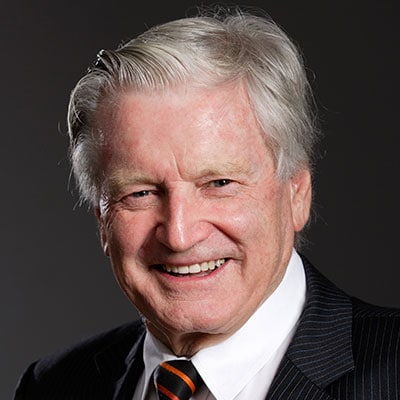Note: This article was originally published on www.multiplesclerosisnewstoday.com, written by Marta Figueiredo and fact checked by Patrícia Silva, PHD.
MD1003, MedDay Pharmaceuticals’ high-dose biotin therapy, failed to significantly improve functional ability or walking speed in people with non-active progressive multiple sclerosis (MS), according to data from a Phase 3 clinical trial.
Besides failing to meet the trial’s goals, the therapy was associated with inaccurate results in lab tests, which, if misinterpreted, may lead to serious complications inadvertently caused by an incorrect diagnosis and treatment, the researchers noted.
Based on these findings, the researchers advised against the use of MD1003 or commercially available high-dose biotin to treat progressive MS. MD1003’s clinical development has been stopped, according to MedDay’s website.
The trial’s full data were reported in the study, “Safety and efficacy of MD1003 (high-dose biotin) in patients with progressive multiple sclerosis (SPI2): a randomised, double-blind, placebo-controlled, phase 3 trial,” published in the journal The Lancet Neurology.
MD1003 is a highly concentrated oral formulation of biotin, a form of vitamin B found in food that helps the body break down fats, carbohydrates, and proteins. While biotin is often sold as a dietary supplement, MD1003 provides 10,000 times more biotin than the recommended daily dose.
Preclinical research showed that MD1003 prevented myelin loss and nerve cell death in a mouse model of MS, likely due to a dual effect on the activity of myelin-producing cells and in the metabolism of damaged nerve cells. Myelin is the protective sheath around nerve fibers that is progressively damaged and lost in MS.
Results from a previous, randomized Phase 3 trial, called MS-SPI (NCT02220933), indicated that one year of MD1003 treatment (a 100 mg capsule three times a day) safely and effectively lessened disability in people with non-active progressive MS, compared with a placebo.
Particularly, benefits were seen in patients’ disability level, measured by the expanded disability status scale (EDSS), and exercise capacity, assessed with the timed 25-foot walk (T25FW) test, which measures the time a person takes to walk 25 feet as quickly and safely as possible.
Follow-up data from participants continuing treatment or switching from placebo to MD1003 showed that the therapy resulted in sustained benefits up to three years and that early treatment was associated with greater improvements.
These positive findings supported the launch of the international Phase 3 SPI2 trial (NCT02936037) designed to confirm MS-SPI results in a larger, more representative group of progressive MS patients.
A total of 642 adults, who were relapse-free but showed evidence of disease progression, were randomly assigned to take either an oral 100 mg capsule of MD1003 (326 patients) or a placebo (316 patients), three times a day.
Treatment continued until all participants reached month 15 and underwent clinical assessment, after which all would receive MD1003 for up to 39 additional months (more than three years). Simultaneous treatment with other disease-modifying therapies was allowed during the trial.
The trial’s main goal was to assess whether MD1003 was superior to placebo at reducing patients’ disability (assessed with the EDSS) or improving their walking speed (measured with the T25FW test) at one year and confirmed three months later.
Secondary goals included time to disease progression, patient and clinician clinical global impression, and mean change in the T25FW test, while exploratory goals comprised brain imaging measures, blood levels of neurofilament light protein (a potential MS biomarker), daily step count (monitored remotely), and quality of life.
The study’s placebo-controlled phase lasted a mean of 20.1 months.
Results showed that a slightly greater proportion of MD1003-treated patients (12%) had less disability or could walk faster at one year, with confirmation at month 15, than those on a placebo (9%). However, this difference did not reach statistical significance.
Predefined subgroup analyses did not find “supportive data for a clinically meaningful effect of MD1003 in any particular subgroup,” the researchers wrote. Non-significant differences between groups were also found for all secondary and exploratory goals, indicating that the trial failed to meet all its goals and to replicate MS-SPI findings.
Concerning safety, MD1003 was well-tolerated, with a safety profile consistent with that reported in previous studies and with no unexpected safety concerns. Rates of adverse events were similar between the two groups of patients.
One person with multiple cardiovascular risk factors and initially assigned to the MD1003 treatment died, but this death was considered by the investigators to be unrelated to the therapy.
Moreover, despite implementation of multiple strategies to reduce the known occurrence of inaccurate laboratory results associated with high biotin levels in the blood, such results were recorded 25 times during the trial.
The most frequent error was related to the levels of thyroid gland hormones, inaccurately suggesting the presence of hyperthyroidism, a condition caused by the overactivation of the thyroid gland.
“When high-dose biotin is used off label, it could lead to deleterious health consequences to patients from misleading laboratory tests that, in turn, could lead to inappropriate medical interventions such as mismanagement of thyroid or cardiac conditions,” the team wrote.
“Therefore, MD1003, and by extension, off-label use of commercially available high-dose biotin, should not be used to treat progressive multiple sclerosis,” the researchers concluded.











